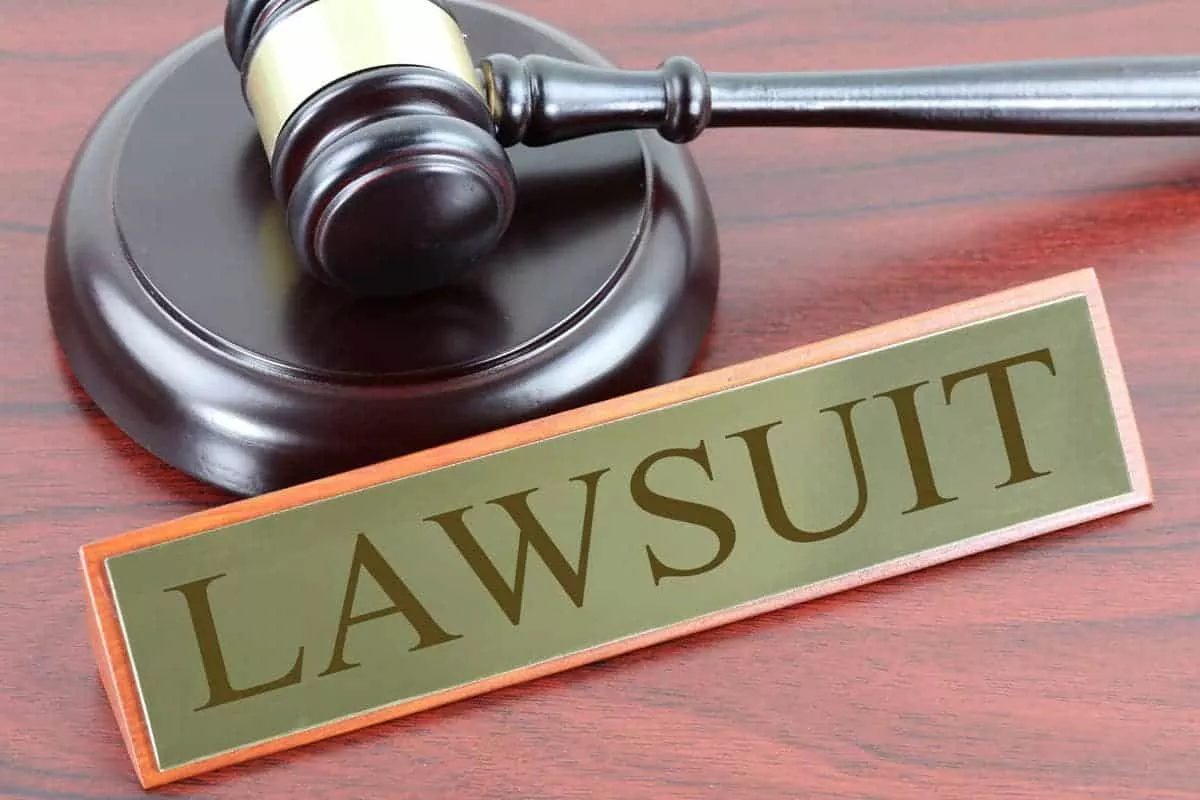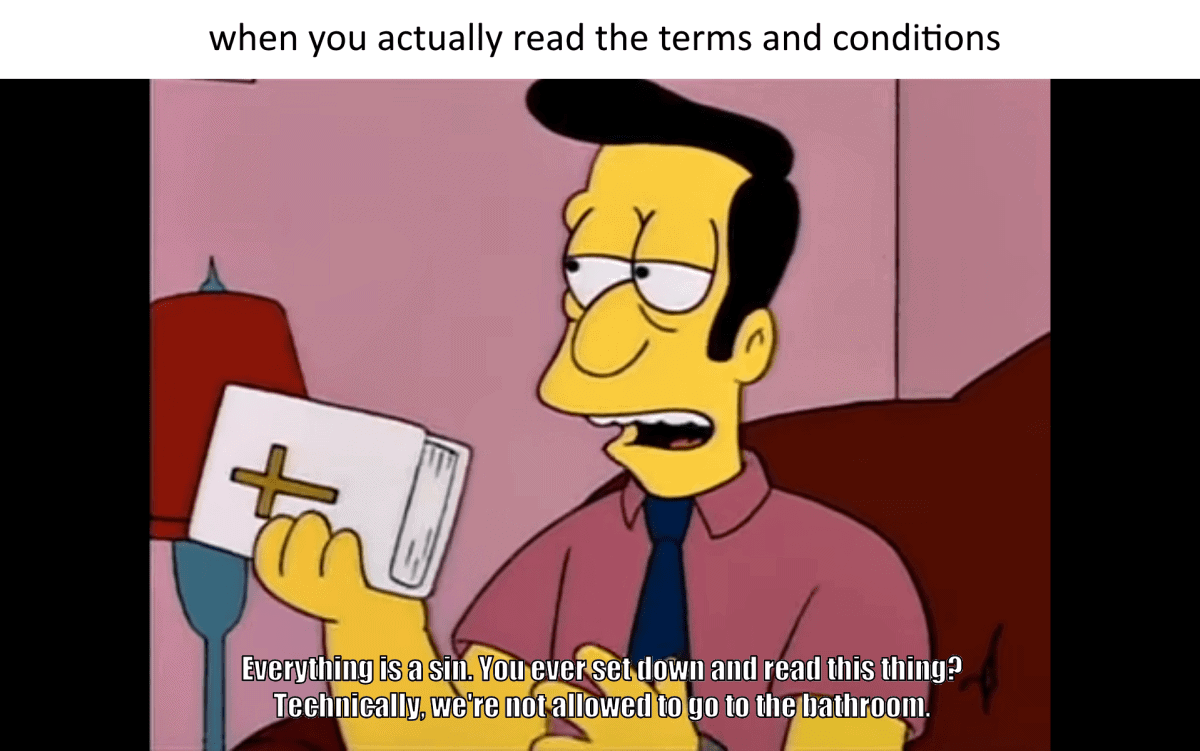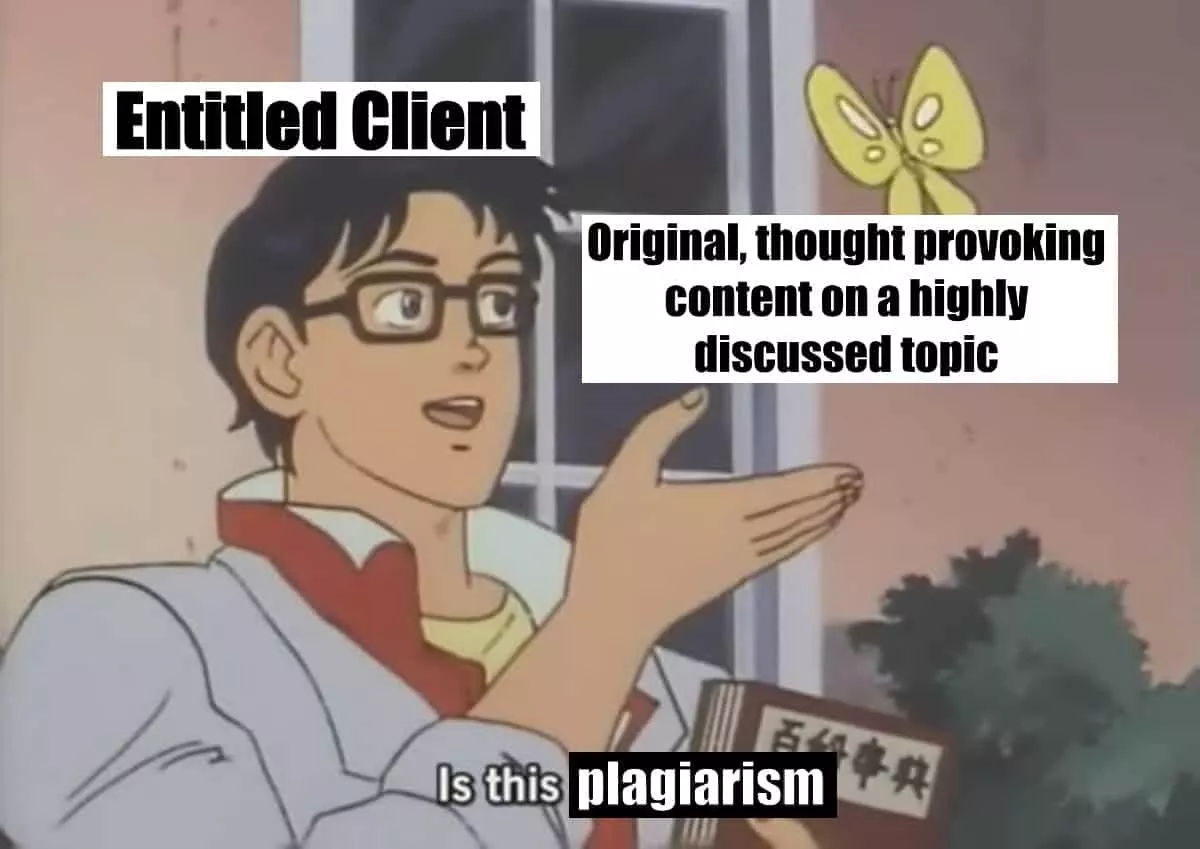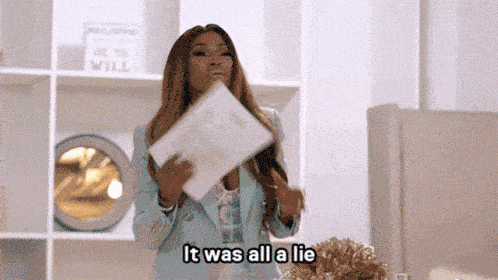
Einstein once said, “there are only two things that are infinite, the universe and human stupidity. I’m not sure about the universe.”
In my opinion, the best (or worst) display of the latter comes in the form of lawsuits. Like the guy who sued his wife for giving birth to an ugly baby and won.
The worst part is, ridiculous lawsuits are uncomfortably common these days. And unfortunately, freelancing seems to be a natural magnet for it.
Maybe it’s because it’s easier to sue one person than it is to sue a company. Maybe it’s clients going on power trips. Regardless, it’s a very common occurrence for freelancers to get hit by lawsuits that don’t even make sense at times.
Here are the most common and dumbest reasons why freelancers get sued, and actionable tips to cover your behind.
Many freelancers score gigs through freelance marketplaces, and clients frequent these sites in search of services. It’s convenient and easily accessible. The platform serves as a middleman for both parties to do business while taking a cut. It’s a win-win-win situation.
But there’s a catch.
Often, the terms of service for most of these freelance marketplaces do not allow their clients and freelancers to interact outside of the platform.

Technically, any form of contact, eg, e-mails, video calls, etc outside the jurisdiction of the platform itself is “illegal”.
If you get caught violating these terms and conditions, the best-case scenario is you’d be let off with a warning.
You could be blacklisted from using the platform, or in worst cases, the platform can choose to sue the offending freelancer for breaching the terms of service and trying to profit from that breach.
I guess the old wives’ tale about reading the terms and conditions were true after all.
First and foremost, stop skipping terms and conditions.
Read them thoroughly and get familiarized with the do’s and dont’s of the platform. Try your best to not violate any of the rules even when being pushed by a client.
This can also be completely avoided by cutting out the necessity for freelance marketplaces in your career.
With the help of a good website portfolio, glowing positive reviews, and a strong network with other freelancers, you are able to get solid clients without going through a middleman. Thus also cutting out the hassle of following a ToS.
Everybody is offended these days. Sometimes, the work a freelancer does for a client ends up offending somebody else.

You might think it’s not really your problem, it’s the client’s property, after all, you just did the work. Any form of defamation lawsuits would be targeted to him/her.
But that’s not always the case.
Freelancers are sometimes dragged into defamation suits along with their clients. In other cases, clients have even redirected legal action upon the freelancer itself, as a way to get themselves out of trouble.
Yes, that’s right. If you make something for a client and it offends someone and they bring it to court — your @ss is liable.
I’ve crossed paths with a freelance graphic designer who faced this before. He worked on a health advocacy project and designed a poster for awareness to stop eating fast food.
As per the client’s request, he made the images eerily similar to a very famous fast-food chain. No logo, just color scheme, and theme. He was sued for $250,000 for defamation and slander but thankfully, he had a good lawyer.
While working on your freelance contract, make sure to include an indemnity clause. Essentially, it will be a legally binding agreement that states once the contract is finished, you no longer have any obligations or liabilities towards it.
This one is a tricky one. It’s very common and mostly unintentional. Sometimes, freelancers are accused of infringing someone else’s copyright.

For example, a freelance writer might have unknowingly created a piece that’s quite similar to another piece somewhere on the internet.
Of course, there are certain times where writers fail to give proper credit when using someone else’s intellectual property.
However, with millions of pieces of content being published every day, it’s easy to imagine how someone could file a case against a freelance writer for copyright infringement, albeit unknowingly.
Even more ridiculous, other times, you can get sued for stealing intellectual property — even if you were the one who created it in the first place.
E.g., a freelance software developer might borrow code they developed themselves previously while working under a contract with another client who claims ownership. If copyright belongs to the client upon delivery — yikes.
Freelancers, especially writers, have to walk on eggshells for this.
Be very careful about the originality of the piece you’re writing/creating. Personally, in times of uncertainty, I use a plagiarism checker such as Turnitin or Grammarly’s checker feature.
By ensuring your content is fresh and original you’re saving yourself from a lot of potential future troubles.
However, keep in mind it’s pretty much impossible to have 100% originality or 0% plagiarism as there are tons of other works online that will be similar to yours. As they say, great minds think alike.
Every human makes mistakes, even the top-skilled professional freelancer might goof up here and there.

Small mistakes like online corrections or republishes are quick and easy to fix, but when it comes to a blunder with serious budget implications such as introducing a bug into software or entering misinformation into a crucial spreadsheet, then you might be slapped with a lawsuit to the face.
Well, you can’t really prevent making an honest mistake, but you can create a safety net for yourself for when it happens.
Yet again, in this scenario, a strong freelance contract with an indemnity clause swoops in to save the day.
Of course, it’s not easy to write an indemnity clause that covers EVERY single potential scenario. I’d say it’s impossible since nobody knows what’s going to happen.
So another way to avoid this is to simply build trust with the client. Through trust, clients would be more lenient with mistakes, and unlikely would reach the point of involving the law.
Freelancers are generally strict about meeting their deadlines. But sometimes, unforeseen circumstances can occur that prevent them from doing so.

It might sound crazy, but you can be sued for that as well.
How?
Maybe you had a personal emergency that day and missed a contractual deadline, setting off a chain reaction that leads to missed sales opportunities for your client.
Or maybe you realize you’re not seeing eye-to-eye on a signed scope of work, leading a client to sue you for not delivering the content they believe they are owed.
Nobody likes to think that these types of scenarios will escalate to that point, but a breach of contract affects a company’s bottom line, it happens more often than you’d imagine.
The most effective way is through communication.
In cases when you are unable to deliver up to expectations, or a predicament that requires you to breach the contract, you should always talk to your client in advance.
Through crystal clear communication, both parties can reach an agreement and make a compromise, thus drastically lowering the chances of the situation being escalated into a lawsuit.
Nobody likes to think these types of situations will escalate to the point of legal action being taken, but when a company’s bottom line is affected, it’s actually more common than you’d think.
Whether a lawsuit is justified or not, all it takes is just one allegation to send you down a time and money-wasting stressful experience.
Fortunately, you can save yourself the future hassles by curating a solid freelance agreement for yourself and by investing in business insurance.
David is a content creator and freelancer. His journey started with writing songs, poetry and academic dissertations in Vancouver. David has freelanced for multiple companies around the world. Feel free to connect with him on LinkedIn.